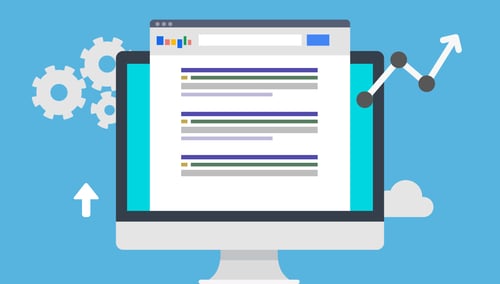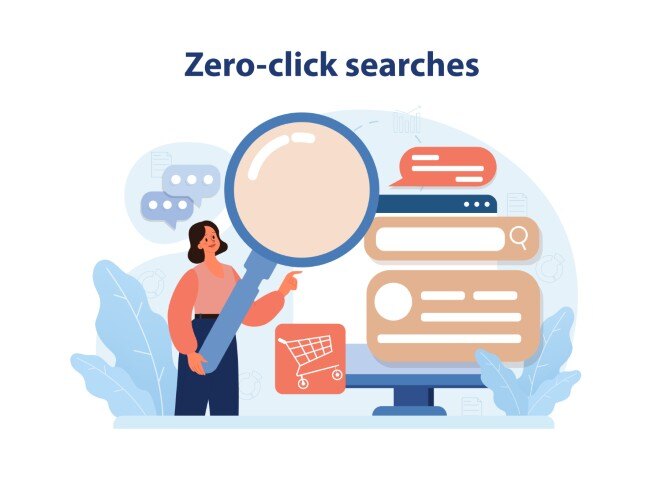Any good mechanic will know that you need to have the right tools for the job; you can't use a hammer instead of a wrench. The same principle applies to measuring your online presence. There are more than 260,000 auto repair and maintenance centers in the USA. Therefore, if you want to inspire confidence and stay visible to your clients (and prospective clients), you'll need a great website that's easy to find.
If you're inclined to Google yourself to confirm these elements, stop! You need to know some critical facts before you click the search button. Below, we discuss the right way to see your website's actual Google rank and the right tools.
Why Not Google Yourself?
If you're interested in your website's performance, doing a Google search on your website is not the answer.
Why?
Even when logged out or using incognito mode, the results will still be inaccurate and inefficient. Take a moment to think about your cell phone and your PC. These devices keep all your contacts, favorites, and personal information. Your computer might be a machine, but these smart devices really understand a lot about us.
Your everyday patterns determine how Google responds to you when you search for something. Your browsing history, device, physical location, and other factors work together when Google sets up a search personalized to you. Let's talk about what happens to search history and location when you Google yourself.
Why Your Search History Matters
Google's search algorithm is constantly working to be the best, most helpful version of itself that it can possibly be.
This means Google prefers sites you've already visited to make repeat searches effortless. It also means that your website will likely appear higher on your results page if you've looked yourself up before.
Why Your Location Matters
Google loves to know where you are. Search results almost always come up with the businesses nearest to you. For example, if you type in a word, such as "grocery," you'll probably find a list of stores in your neighborhood. Google Maps also conveniently tracks the places you visit. In other words, what ranks on your phone's search isn't the same as what ranks on another person's device.
So, if you Google yourself, your location plus your browsing history is likely to make your website appear to rank higher on Google than it actually is. You may think you're looking good, but your neighbor will get different results from the same search terms. Therefore, you want the right SEO toolkit to check your rankings.
Check Your Ranking
There is a right and wrong way to find your ranking on Google. As we've discussed, the wrong way is to Google yourself. The right way is to use specific online tools to help you get real informative, accurate data. If you want to improve your ranking on Google, understanding SEO is the best place to start, and this is where keywords come in.
Search Engine Optimization (SEO) involves determining how your target keywords are doing and improving your website metrics where you can. There are three elements that you need to consider:
1. Specific Keywords
Take a look at your website's ranking for specific keywords such as "auto repair." Check which keywords bring you the most traffic and which are notable by their absence. Remember, customers may also search for "fix my car" or "cost of service."
Keyword research for your industry takes some time, but you'll be analyzing reports and noting your keyword positions like a pro with a bit of study.
2. New Keywords
Your industry-specific keywords are vital, and you'll want to make the most of them as far as possible. However, you don't have to limit yourself to one or two specifics, as there are a surprising amount of keywords that you can harness to attract visitors to your site. Look at catching variations or local terms that your user may search.
Additionally, it would be best if you thought about keyword volume. In other words, try to improve your content to use the most popular keywords and those most relevant to your industry and location. On the way, pick up the other keywords that are helping you rank, those that are semantically similar, or add context to your website.
3. Keyword Effectiveness
It helps to know which keywords really work to bring traffic to your site. You'll want to know about your website's performance in terms of the keywords attracting the most clicks.
Determining your keyword effectiveness involves analyzing metrics such as:
- Average click-through rates
- Average positions
- Total impressions
- Total clicks
Yes, there is an element of data science here, but it's well worth understanding to get the most traffic from the best words.
Your Keyword Toolkit
 There are various free SEO tools, such as Google Search Console, that you can use to figure out how your website is doing. These tools can go a long way in measuring your site's performance. You could use any one of the three ways mentioned above to work on optimizing a particular aspect of your search rankings, but you'll probably need to explore all three methods to really fine-tune your site.
There are various free SEO tools, such as Google Search Console, that you can use to figure out how your website is doing. These tools can go a long way in measuring your site's performance. You could use any one of the three ways mentioned above to work on optimizing a particular aspect of your search rankings, but you'll probably need to explore all three methods to really fine-tune your site.
The only problem with free tools is that they come with limitations. For example, you might be restricted in how many lookups you can do per month. Or you might find yourself bombarded by ads.
Seeing Your True Ranking
A lot goes into developing and maintaining an effective website. If you want to build credibility with new clients and maintain the loyalty of existing ones, a solid professional website that's easy to find is vital. Getting your website to rank takes a little online savvy. But, with the right tools and some effort, you can learn how to read the analytics, understand the data and improve the overall metrics.
But why Google yourself when you have other resources available to you?
Not everyone has the time to learn about SEO or filter through the numerous online tools available. If that sounds like you, get in touch with us for the complete website toolkit for your exact business needs.




